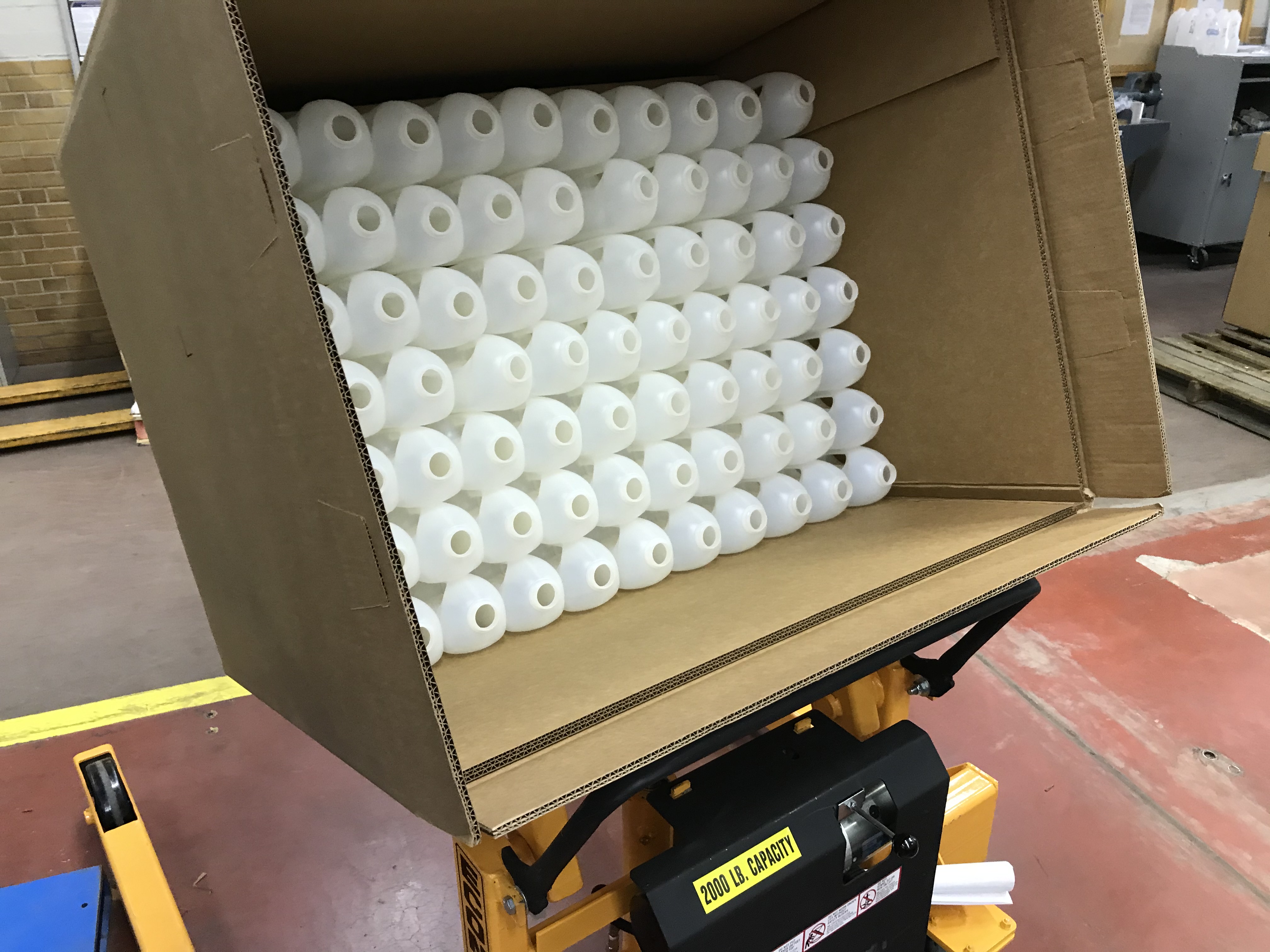Amid the COVID-19 pandemic, Chevron Phillips Chemical (CPChem) stepped up to make a difference. Last month, our Bartlesville Research and Technology Center manufactured and donated 100,000 HDPE, 52 oz. bottles to be filled with hand sanitizer.
This story is a celebration of an unexpected team effort between CPChem and the American Independent Distillers Cooperative. As result of COVID-19, an exponential increase in the demand for hand sanitizer across the country placed some US distillers in a unique position. Instead of making their normal alcohols and spirits products for consumption, many distillers across the country quickly “re-purposed” themselves to make the desperately needed hand sanitizer. The primary ingredient of hand sanitizer, alcohol, was already on hand. However, as these distillers began to produce large volumes of hand sanitizer, they required containers to package, transport and distribute the valuable sanitizing agent to critical organizations across the US.
Ashish Sukhadia, global polyethylene applications manager, at our Bartlesville R&T Center was reading through requests for plastic products in an email from the Plastics Industry Association when he came across a call for 100,000 half-gallon HDPE bottles. With a drive to make a difference and confidence in the Bartlesville team, Ashish immediately suggested that CPChem take on this project. The same day, he received full approval to donate the bottles and all labor required to make them.
As project planning began, Ashish told his team, “If we provide these 100,000 bottles (that will be) filled with sanitizer, and they go all over the country and if those hand sanitizers with our produced bottles save even one life, it would be more than worth the effort.”
Before the first bottle was made, Ashish and his team at the Plastics Technical Center (PTC) had to navigate a host of issues. CPChem’s COVID-19 guidelines meant that the team would be working with limited staff. Additionally, the Bartlesville location is a research center and not a manufacturing facility. Despite all challenges, the PTC group remained dedicated and developed a plan to produce the bottles within a two-week window. To hit their target, 10,000 bottles needed to be completed during each of the 10 working days. On Day 2, an unfortunate break down of equipment halted production completely.
Showing an impressive commitment to reaching their goal, the crew quickly resolved the problem and resumed making bottles within 48 hours, even volunteering to work through Saturday to make up for lost time. By Friday morning of the second week, the project had wrapped up slightly ahead of schedule, with a total donation of more than 100,000 HDPE bottles.
When asked how it felt to have completed this significant project, Sukhadia said, “It’s a sense of pride that the company, and the management and the people who have been doing this hard work for 10- and 11-hour days for the last two weeks were able to pull it off.”
CPChem is grateful for the substantial efforts of employees at the Bartlesville R&T Center and for finding yet another way for CPChem to make a positive difference near and far.
